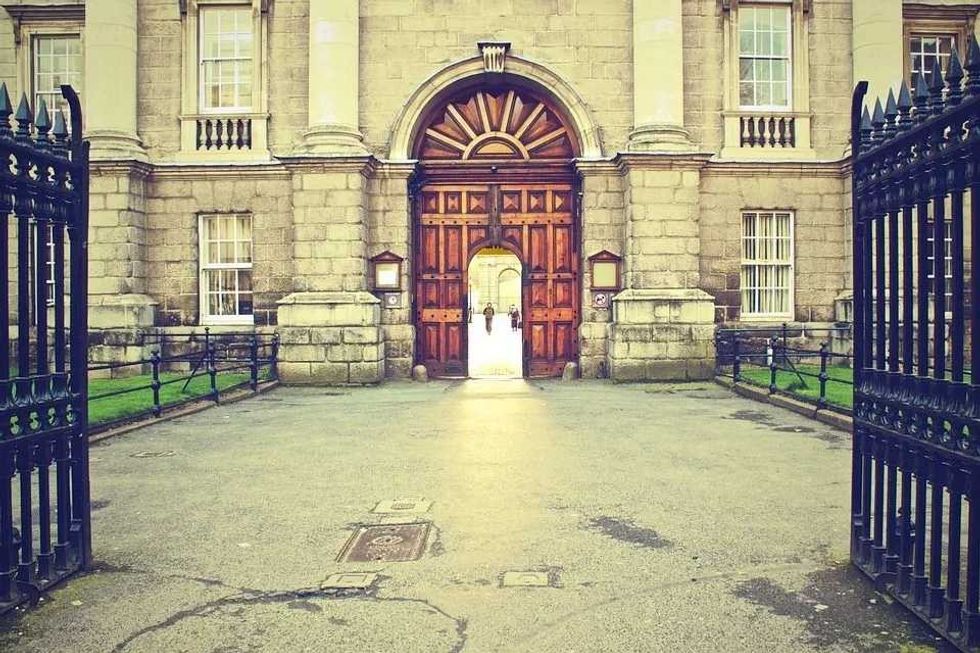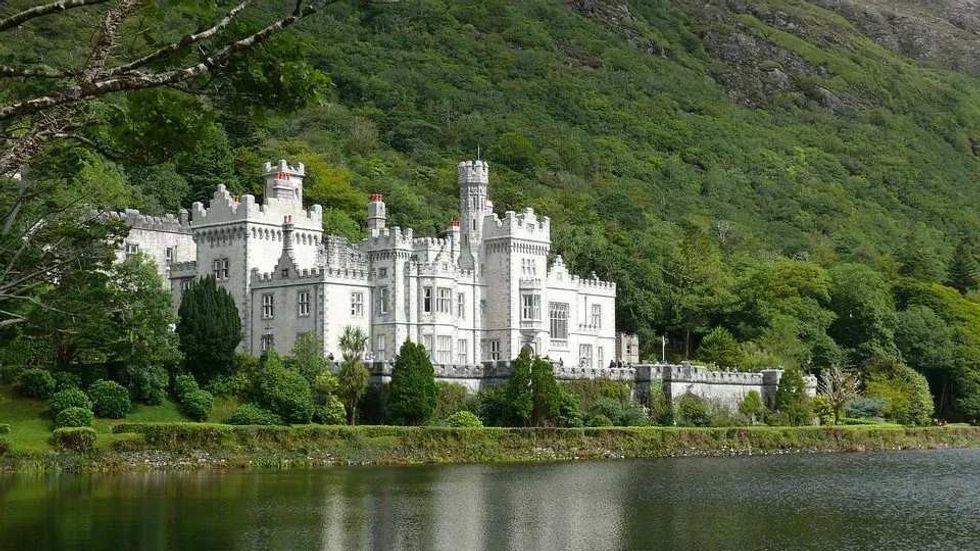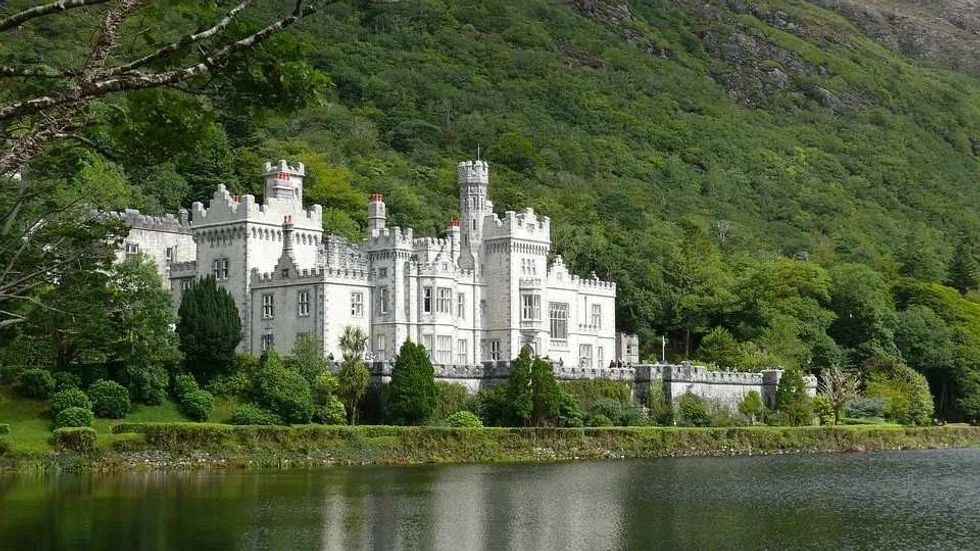Interesting Ireland Education Facts That Will Teach You A Lot!

The Republic of Ireland is a country in the Northwestern region of Europe that was a British colony in the past.
Ireland has one of the best education systems that many countries when it comes to post-primary education. One of the most interesting facts about Ireland's Education system is that it is completely funded by the state.
This support by the government organization ensures compulsory education to students after six years of age and till 14 years of age. The education system is well planned and the curriculum is inclusive and child-centric in nature.
Ireland's educational system also sees into the special needs of education for children with intellectual disabilities. They have different training boards and government organizations that look after the smooth implementation of the education system. Here are some interesting Ireland education facts regarding the educational system.
After reading about the system of primary education and transition year in Ireland, also check Celts in Ireland facts and famine in Ireland facts.
Primary Education System And Schools In Ireland
Like in every country education is compulsory for the children in Ireland. Children from the age range of 6-16 years old must attend school. The education system in Ireland is made up of four levels. Primary, Secondary, third level education, and further education.
The Irish government has arranged for state-funded education, special education, public schools, Irish language schools for children at all levels. The parents can also choose to send their child to a private school.
The rules and regulations regarding the process and admission policies in Irish schools have now changed under the Education (Admission to Schools) Act in the year 2018.
Pre-school education in Ireland is funded by private childcare facilities and providers. The Irish education system has come up with the Early Childhood Care and Education Scheme that provides free service in early childhood care. The scheme also provides free education for children of preschool age.
Some initiatives implemented for children are also funded by the Department of Education and Skills. Irish children need not attend school till they turn six-year-old. But they might start Montessori schools if it follows their fourth birthday. The schools start in the month of September.
The primary school curriculum and syllabus in Ireland are child-centered. It is designed from the children’s ability to grasp the knowledge and learning requirements of a literate.
The Primary schools in Ireland are owned by private individuals or stakeholders. Some are also owned by religious communities or a board of governors. But the majority of the primary schools are state-funded.
The second level education i.e. Secondary education in school is provided by many post-primary schools. This comprises either a three-year junior. Irish students begin their junior cycle at the age of 12. And then after three years, they are given Junior Certificate. The transition year is generally free and students don't appear for any formal examinations.
This allows the students to explore and experience a varied range of educational fields and subjects of interest. During the final two years of their school, the students take any one program out of three that lead to a state-level examination.
They are provided with the Established Living Certificate which becomes the main basis on which students are allocated into universities, colleges, and institutes. The students in Ireland are also provided with a Learning Certificate Vocational Programme which includes additional topics and modules that have a vocational focus.
This differs from the earlier certificate as it does not emphasize the technical subjects. Other certificates aim to develop all the possible areas of the human brain. The intellectual, social, physical, emotional, spiritual, and aesthetic with relevant learning experiences.
The third level of the education system in Ireland is made up of a number of different sectors. These are the technology sector, university sector, higher education institutes, and colleges for education.
All these are majorly funded by the State. These are also accompanied by a certain number of private colleges.
For degree programs at the bachelor, master, and doctorate levels there are autonomous and self-governing universities that provide the necessary degree. Further or higher education comprises training that is not a part of the third level system.
It includes programs for vocational training or post leaving certificate, opportunities scheme, Youthreach for early school leavers, other literacy and basic education, etc. For universities, there are student service fees applicable that are due on registration.
Overview Of The Irish Education System
The Irish Education system be it primary or secondary education, is extremely well planned and student-centric. The overall goal of the education system is to ensure the holistic development of the child in all aspects of knowledge.
A strategy is developed by the department of education, the state, and the private sector is responsible for the overall development of the education system. State-funded schools and public schools not only ensure the attendance but also inclusivity of education in Ireland across all categories of students, younger children.
Schools in Ireland bring out the uniqueness of the education system. It shifts the focus after primary level to those subjects that the children might find interesting. It addresses intellectual disability, mental fatigue, and other learning disabilities and finds a solution to tackle these problems. Ireland also provides vocational training and other skills in order to be employable.
Special Needs Education For Students With Disabilities
The schools in Ireland also take into consideration the education of children with disabilities. This special education provision comes under the Educational needs of students.
This is hugely supported by mainstream schools as well as specialist support to the special schools.
An Irish student with any disability can be enrolled in either of the three school options.
Mainstream class with additional support, a special class in a mainstream school or special school which specifically caters to the student with his disability requirement, thus school and learning process can be made customized for the student depending on the level of disability and the intensity of the learning disability of the child.
The three specific classes are discussed in detail:
Mainstream Class: many students having disabilities or special needs are admitted to mainstream classes and mainstream schools. Here they enjoy the learning process amongst other children.
Children with disabilities will be included as children help each other. However, they also get help from the resource teachers and care support from special needs assistants. These assistants cater to the specific needs of students with disabilities.
Special classes in mainstream schools: Irish schools also arrange for special classes in mainstream schools especially for children with disabilities. In order to have separate individual attention, special classes within mainstream schools are a good option.
These special classes with a friendly classroom setting have less number of children and it is easy to cater to the different needs of disabled children.
Special Schools: Ireland's education system has around 140 special schools that cater to particular types of disabilities and children with special needs. To name a few are special schools for students who show a general learning disability. This is at a mild or moderate level.
Then there are special schools for children who are visually impaired. A few schools are also present for children with physical disabilities.
Special schools for hearing impaired children. There are also schools for children who are emotionally or mentally disturbed. The good thing is that there are special schools in many areas so parents can pick one which is closest to them.
In order to run a special school and have an equal learning system, there are certain arrangements made for students with particular learning disabilities. They are exempted from the usual requirements of education. If a child is having dyslexia the child can be exempted from studying the Irish language or any other modern language.
This provides a systematic education plan for special children. There are also certain government provisions under the Education for Persons with Special Educational Needs Act 2004 where each child that has a disability needs to have a personal education and learning plan. The implementation of this plan is coordinated by the educational body National Council for Special Education (NCSE).
The NCSE has come up with guidelines for the Individual Education Plan process and published a report. Currently, there is a lag in the implementation regarding the assessment of the disability of children and customizing educational plans.
The education model for children with disabilities is inclusive in nature. In 2017, a new system was placed that allots special education teachers in each school. The number of teachers to be allocated depends on the educational profile and the size of the school. This ensures necessary resources to the school in advance.
This meets the requirement of special teachers and the enrollment of children with disabilities in a planned manner. The Department of Education and Skills gives details for parents on how to access the additional teaching support for disabled children in mainstream and special schools.
However, for primary and post-primary schools the allocation model of special teachers is now deferred to 2022-2023.
Another important requirement is that of the transport arrangements while attending schools. Schools provide transport facilities that include safety harnesses, and escorts for students with disabilities.
The Irish Government plays an important role in catering to special needs education. The NCSE is a statutory body that manages and administers the overall planning and coordination of education services to support disabled children. It works jointly with all the schools and the Health Service Executive.
NCSE also provides the necessary information concerning the new updates and schemes regarding special education needs. It also reviews and assesses the sources required for their education. It ensures the entire process and implementation of the special education plan. It ensures and monitors the progress of students and the inclusivity of special needs education.
It also consults with other interested voluntary bodies. NCSE also advises the Minister for Education on the same above matters. It also funds and supports research and public surveys to improve the special education system.

Deep History Of Irish Education
The Irish history education system was dominated by the role of Churches and religious communities in the early 19th and 20th centuries. They controlled all the education systems in Ireland. Since the country was colonized by England there was a church dominance in all sectors of education.
The English ruled and hence the churches had all the powers. The Church of Ireland and the Catholic church battled and had disputes for many years over the control of the education system.
Throughout the 18th century, it was witnessed that the management of the schools and education system was in favor of the catholic church and its subordinates.
This overall control still continued till the 20th century and finally, the State took over the overall power of all sectors. This change in management is a result of many factors and policies over the years.
A National board focused on educational development was established by Lord Stanley whose duty was to collect the funds for the development of education, to build schools, pay the teaching staff, set up school inspection systems, establish training amenities for teachers, and so on. The progress was slow and the national school system faced many problems.
The Irish Education Act of 1892 also aimed to tackle educational problems and thus made education mandatory for the students of age 6-14. In order to ensure attendance and free education, the teachers were paid less and faced many unfair conditions. These have risen to many controversies and conflicts in the education system in Ireland.
Creation Of Modern Education System In Ireland
To be approachable for job opportunities, that will ensure economic recovery, smooth delivery of knowledge, and learning outcome of social and cultural significance.
Also, designing new structures that specifically encompasses the diversified learning requirements of Irish student. The education system must develop an effective research capability among the adults, and gain the attention of the best top class capability in recommended areas are the core aspects of modern education in Ireland.
Equitable and Inclusive education that caters to every student's learning requirements and ensures fair accessibility is the future path and base of the modern education system.
Here at Kidadl, we have carefully created lots of interesting family-friendly facts for everyone to enjoy! If you liked our suggestions for Ireland education facts then why not take a look at Vikings in Ireland facts, or fun facts about northern Ireland?
We Want Your Photos!
More for You
Bachelors in Business Administration

Aashita DhingraBachelors in Business Administration
Based in Lucknow, India, Aashita is a skilled content creator with experience crafting study guides for high school-aged kids. Her education includes a degree in Business Administration from St. Mary's Convent Inter College, which she leverages to bring a unique perspective to her work. Aashita's passion for writing and education is evident in her ability to craft engaging content.
Disclaimer
1) Kidadl is independent and to make our service free to you the reader we are supported by advertising. We hope you love our recommendations for products and services! What we suggest is selected independently by the Kidadl team. If you purchase using the Buy Now button we may earn a small commission. This does not influence our choices. Prices are correct and items are available at the time the article was published but we cannot guarantee that on the time of reading. Please note that Kidadl is a participant in the Amazon Services LLC Associates Program, an affiliate advertising program designed to provide a means for sites to earn advertising fees by advertising and linking to Amazon. We also link to other websites, but are not responsible for their content.
2) At Kidadl, we strive to recommend the very best activities and events. We will always aim to give you accurate information at the date of publication - however, information does change, so it’s important you do your own research, double-check and make the decision that is right for your family. We recognise that not all activities and ideas are appropriate for all children and families or in all circumstances. Our recommended activities are based on age but these are a guide. We recommend that these ideas are used as inspiration, that ideas are undertaken with appropriate adult supervision, and that each adult uses their own discretion and knowledge of their children to consider the safety and suitability. Kidadl cannot accept liability for the execution of these ideas, and parental supervision is advised at all times, as safety is paramount. Anyone using the information provided by Kidadl does so at their own risk and we can not accept liability if things go wrong.
3) Because we are an educational resource, we have quotes and facts about a range of historical and modern figures. We do not endorse the actions of or rhetoric of all the people included in these collections, but we think they are important for growing minds to learn about under the guidance of parents or guardians.







